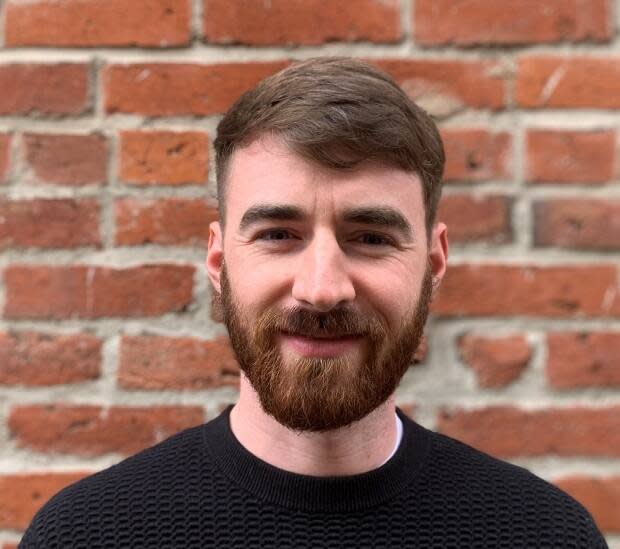Weighing the risks: Researcher looking at toxic health messages on TikTok

When the COVID-19 pandemic began, Kaitlyn Fortune started seeing what she calls "a lot of garbage" about weight posted on the social media platform TikTok.
And as the world reopens, the master's student in sociology at Memorial University in St. John's says it's still a problem.
Jokes on social media about pandemic-related weight gain — "the COVID-19," as in 19 extra pounds, for instance, and also the "Quarantine 15" — paved the way for TikTok to turn toxic, she found, with users saying things like, "You gained weight in quarantine, now it's time to get your 'reopening body' back."
Fortune was struck by how negative that was.
"We just survived a pandemic," said Fortune. "So that's the dichotomy I'd like to look at in TikTok."
Fortune has turned the focus of her research to weight stigma, interviewing Canadian users of the platform between 18 and 35 who identify as female, fat and having experienced weight stigma.
She said she was surprised by her findings, as the people in her study talk more about body acceptance and how TikTok had helped them.
"It seems like for my participants, the positive videos won out," she said. "That was really encouraging, to see this. Despite all the other garbage going on in the pandemic there were activists and creators speaking up enough about it that it affected their lives."
Research into TikTok lacking
Social media, particularly Instagram, has a bad reputation when it comes to its influence on young girls and their body image.
It's not surprising that there's a public health utility with TikTok, said Marco Zenone, a research associate at the University of British Columbia and a doctoral student at the London School of Hygiene and Tropical Medicine.
"What we find on TikTok is it could be a big force for public health in many good ways. At the same time it can also not be a force for public health. Because TikTok's algorithm is so powerful, it really matches you to the content you want to see. It's really good at this," he said.
If someone is looking at body-positive videos on the platform, Zenone said, they are more likely to see videos on that theme. But if their interest is losing weight, those are the videos they'll see.
Researchers and others have criticized TikTok for enabling viral posts that allegedly promote eating disorders. Earlier this year, the company said it was further cracking down on the content.
Zenone said the company has been receptive to getting rid of content promoting eating disorders by taking measures like removing hashtags.
"TikTok is so massive. It's a massive platform. A billion people, really young people. And we really don't know that much about it, which is a bit of a scary thought when we think of how large a number one billion people is," he said.

It's also why he said the research Fortune is doing is great to see.
"I kind of want to believe what the push is — we're just tired. It is exhausting to diet," she said. "I think it's a callback to what we're supposed to do, which is eat food and be in our bodies and move our bodies."
While Fortune was surprised people had any positive experiences, there was still negative feedback in her interviews. She heard anger from people about not being able to fit into clothes or being seen as accepted by society.
Fortune is set to start her PhD at Memorial in the fall, looking into diet and wellness culture and what it means to live outside it. This summer she's planning to launch a podcast on diet culture.

